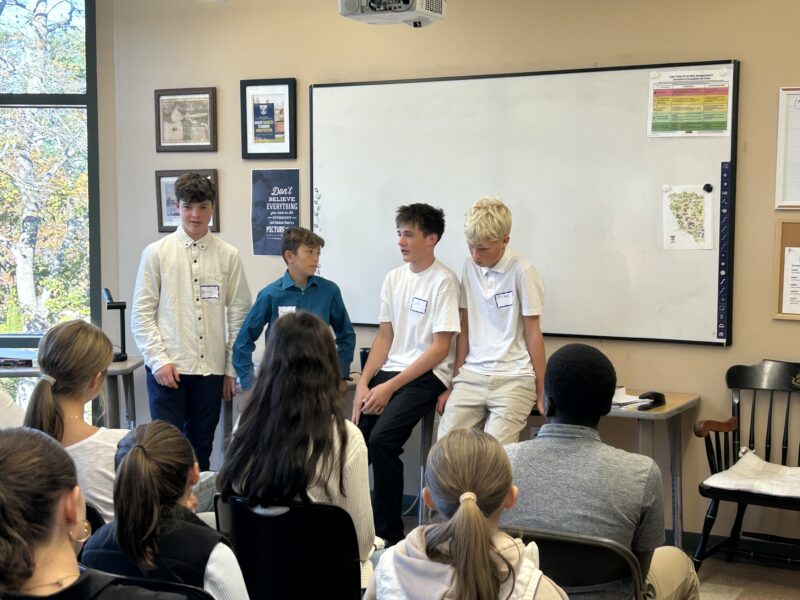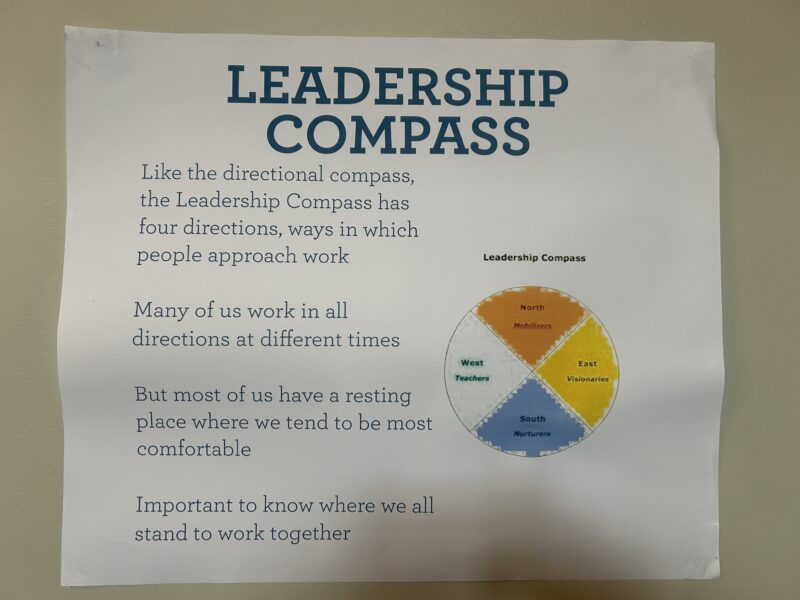“We help others achieve their best.” I mean, who could have a problem with that?
That statement is the definition of Brother’s Keeper (BK), easily the Hyde student’s most controversial topic and the one he/she has the most difficulty accepting, to say nothing of embracing.
There are at least two reasons for this. First, no one wants to be called a “narc” or a “snitch.” Typically, one’s first encounter with BK is unpleasant: Either you have been observed engaging in unethical behavior OR you have witnessed same. That’s messy.
The second has to do with the fact that our educational system tends to pit students against each other in ways that discourage them from helping each other. As my dad, Joe Gauld, writes this month in the Huffington Post: “Competition, not curiosity, is emphasized to develop intellect, and students are taught to compete against each other, not to learn how to work together.” See:
My experience shows that kids (and parents) are very tuned into the first reason (i.e., the narc factor) and pretty much oblivious to the second.
My definition of character is “our guardian against temptation; our catapult to greatness.” BK is all about both. In fact, if it isn’t about both it isn’t BK. When people talk about BK, they tend to focus on the guardian (i.e., the snitch/narc dynamic). I call that JV BK. I’d like to offer some observations about the catapult, Varsity BK. So, let’s move off-campus and consider three powerful examples of BK in action.
1. An Urban Public High School
A student in one of our public charter schools (let’s call him Robert) had been involved in a series of discipline violations and he had a negative attitude about it. The head of school called a concern meeting. With reluctance in the air, a few students timidly expressed some concerns. One of the more powerful moments in the concern meeting occurred when one of Robert’s friends said, “You know, sometimes you can be defensive when anyone tries to make suggestions to you.”Feeling betrayed, Robert glared at the young man and began to sulk.
The meeting concluded with mixed reviews, vague commitments for the future, and a plan to reconvene a week later. A week passed, the group met again, and Robert shocked everyone with this observation: “The only thing I know is that I just completed the best week I’ve ever had in school. So for me, the concern meeting was a very good thing.” As encouraging as that was, it is not the end of the story.
The meeting continued and Robert’s friend observed, “You know, come to think of it, I also just had the best week I have ever had in school.” When asked why, he reasoned, “Well, after I got done telling Robert what he needed to work on, I felt this strange desire to set an example. I definitely did not want to be a hypocrite.”
BK is as important to the “keeper” as it is to the “kept.” In simplest terms, we cannot expect to “get it” unless we “give it.”
2. College Campus I
During one Hyde community meeting we featured recent alums on stage talking about their efforts to apply what they’ve learned at Hyde to the challenges of the outside world. During the Q&A phase of the meeting, one student pointedly asked the alums, “OK. No BS… Do you really do Brother’s Keeper in college?” One of the college students replied, “Definitely.” Nearly all of the others nodded in agreement.
What was clear was the difference in mindsets between the questioner (a newer student who didn’t appear to be much of a fan of BK) and the “answerer” (an alum who, having once been a Hyde student, could empathize and identify with the questioner’s attitudes about BK). They were two ships passing in the night.
The student, still in the early stages of understanding, meant, When you see kids breaking rules, do you turn them in? Being a relatively new student, he had trouble seeing beyond BK as anything other than a snitch system.
The alum, thinking on a deeper level (and having been knocked on his tail a time or two since graduating from Hyde), observed that college becomes both easier and productive once you establish a network in the form of a productive peer group that will both support and challenge you. Ah… That’s BK.
3. College Campus II
The first paper I submitted at Bowdoin College was a 2-pager in Freshman English Composition. Certain that it was one of the finest pieces of academic work I had ever done, I eagerly awaited the professor’s verdict. A few days later, the professor returned it to me all marked up in red ink with a grade at the top that read “D-/F”… the lowest grade one could receive that was not an F. Suffice it to say that my world was rocked.
Distraught, but guided by false pride, I initially told no one. Eventually, I broke down and approached my roommate, a guy who seemed to effortlessly receive A’s on anything and everything that he wrote. He good naturedly offered to critique my work. He also asked me, “How honest and frank do you want me to be?” I responded with, “Brutal… no holds barred.” (Hey, I had been to Hyde!)
A few days later, I presented my roommate with the draft of a paper that had been assigned in a political theory course we also took together. He attacked it. The paper had included an observation prefaced with something like, “It’s only human nature for man to yada, yada, etc.….” Upon reading this, my roommate turned to me and said, “Oh, Exactly when did you become an expert on human nature?” He must have read the resentment on my face as he softened the blow by asking, “You sure you still want brutal?” I responded with the mid-70’s equivalent of “Bring It.”
While I cannot report that I soon began to knock down A’s on my papers, my grades improved. On the one hand, I credit my roommate for helping me take some big steps forward academically. On the other, I credit myself for intentionally seeking out and voluntarily entering into a demanding and challenging tutorial relationship… a BK relationship. Sometimes you have to seek out the help that you might not want but the help that you know you need. My own Hyde education helped steer me to do just that.
“We help others achieve their best.” It sounds simple, but it’s probably the hardest concept a Hyde student has to learn. That’s true of a lot of things that carry a lifetime of value.
Onward, Malcolm Gauld


